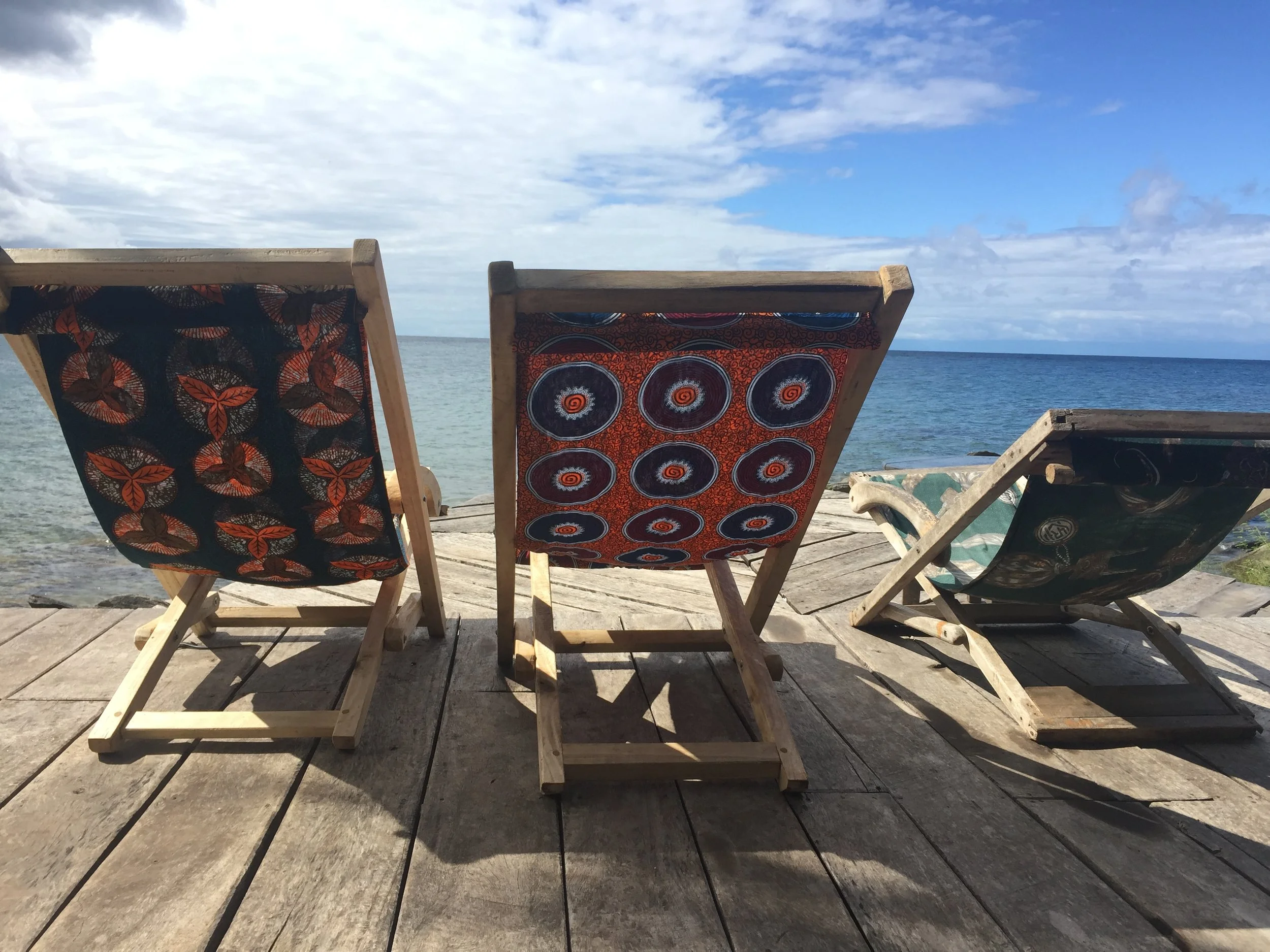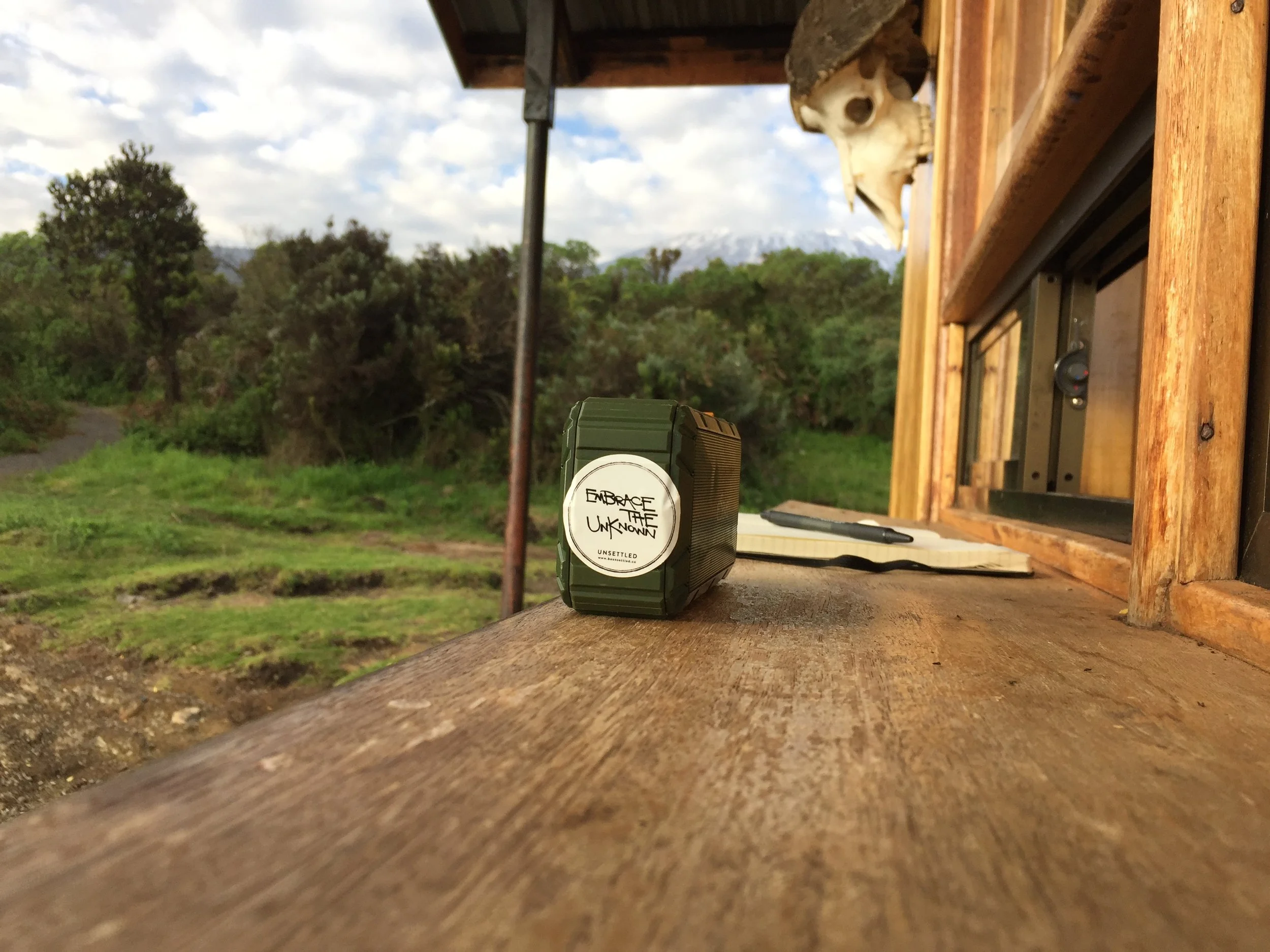across the Zambezi

Zambia was a quick trek-through of only four days between Botswana and Malawi.
The day began when my overnight bus in Botswana dropped me off at 6am in Kasane and I walked to the notorious Kazungula border crossing. Land borders in Africa are ubiquitous for their hustlers, guides, and scam artists, eager to change tourists' currency (for a stiff markup), help them find transport, or walk them through the usually simple immigration process. The Kazungula ferry, which shepherds people, cars, and big rig trucks across the world's smallest border (150m) from Botswana to Zambia, is renowned for its touts, who will hassle tourists to pay for the free crossing. (The border is actually a cool quadripoint between Botswana, Namibia, Zambia, and Zimbabwe.) Fortunately, at 6am there was not much action to be found, just a flock of undercaffeinated truck drivers waiting to ford the river.
On the other side of the Zambezi, I met a Botswanan truck driver and caught a cab with him and two Zambians into Livingstone, Zambia's major tourist hub across Vic Falls from Zimbabwe. Here again, the group showed the earnest and fervent redeeming religiousness I had seen across southern Africa. The conversation in the car revolved around the "right to die" and morality of suicide (driven by the taxi driver's windshield sticker, which read "Protected by the blood of Jesus.") Livingstone is itself named after the Scottish explorer David Livingstone, who explored much of southern and eastern Africa to find the source of the nile, but as it turned out, was not much of a missionary - his only convert decided later to return to polygamy.
A woman wrapped in her floral dress and a blanket for the chilly morning waits alongside the Kazungula Ferry, while a big rig disembarks from the Zambia side.
In Livingstone, I got the chance to spend a day with a group of volunteers for an organization called Humana, who were working "out in the bush" in Zambia. The Bulgarian, Romanian, and Spanish volunteer had been working for the last three months to build a new market for the village so that vendors didn't have to make multi-hour treks each day to sell their goods. They lived mostly off nsima (a dish of crushed maize similar to mashed potatoes, called mealie meal in Zimbabwe), meaning the first stop of the night was a trip to a pizza joint for the three of them to eat their first cheese in three months.
Maize (what we'd call polenta) is the most important crop in Zambia, as in many other African countries. It's an easy-to-harvest staple that a few locals told me gives anyone enough energy in one meal to last the whole day - more than rice or potatoes. It's speculated that the giant maize boom that Zambia is currently benefiting from (and which Zimbabwe is buying back to feed its people) is driven by the same farmers that Zimbabwe spent the past decade evicting from their land, who then migrated over the border into Zambia.
The volunteers shared joking stories about their work in the village that hinted at a thin fatalistic attitude of locals towards the group's community improvement project. Everything villagers agreed to would be "no pressure," or "no problem." Yet frequently, the volunteers would find themselves left alone when they tried to recruit local help, with the excuse "we failed." "Why couldn't you come to the meeting? "Oh, we failed."
The local beers, named for the Zambezi River...
...and Mosi-oa-Tunya, the Kololo name for Victoria Falls, which means "The Smoke Which Thunders."
"Don't worry about supporting me, don't be jealous just because I am so rich," said the man walking the aisle of the bus to Lusaka selling candy. He made his way up and down the packed bus, joking with mothers and giving some free chocolates to eager kids. But when the bus started, he became a preacher, giving sermons on John 3:16, the sin of abortion, and the immorality of killing your fellow man. On the drive, the bus passed by businesses with names like "God's Visitation Restaurant" and "The Lord's Blessing Auto Parts."
On the bus ride out from Lusaka to Chipata, on the border with Malawi, we saw a fire tearing through a field of corn. In India and Vietnam i had seen the columns of smoke from the controlled fires of farmers burning their crops to make space for newly planted seeds. At first I thought that this fire was one of the same, but then realized I was in the southern hemisphere, and winter was just coming. Maybe the fire was accidental. The flames leapt high into the air from the green maize, and the foot of the black smoke seemed to slowly consume the whole field as we drove by.
Women rush the side of the bus and reach up to sell fruits and vegetables to travelers.
A typical streetside market along the highway from Lusaka to Chipata on the Mozambique border.
All along Zambia, women wrapped in brightly colored wraps line the sides of the highway in front of small villages with stands made of sticks, thatch, and bricks, selling fresh fruit and vegetables to passerby. Their kids run around, playing in the dust next to them - the men are always somewhere else, maybe off at work.
But at each of the bus stations, men run up to you as you approach to offer you anything. As your car or bus pulls into its place, you will see them run along, excited by the mzungu (white man) who may pay for something. They trade in bus information, rides, tickets, fruit - anything that can be sold. Some people described the stations as chaos - "here come the sharks, in for the kill" I joked to two Chilean friends I was traveling with, as our car pulled up to the station - but after the interior of India, nothing is really chaos.
Nik / 5.16.17










